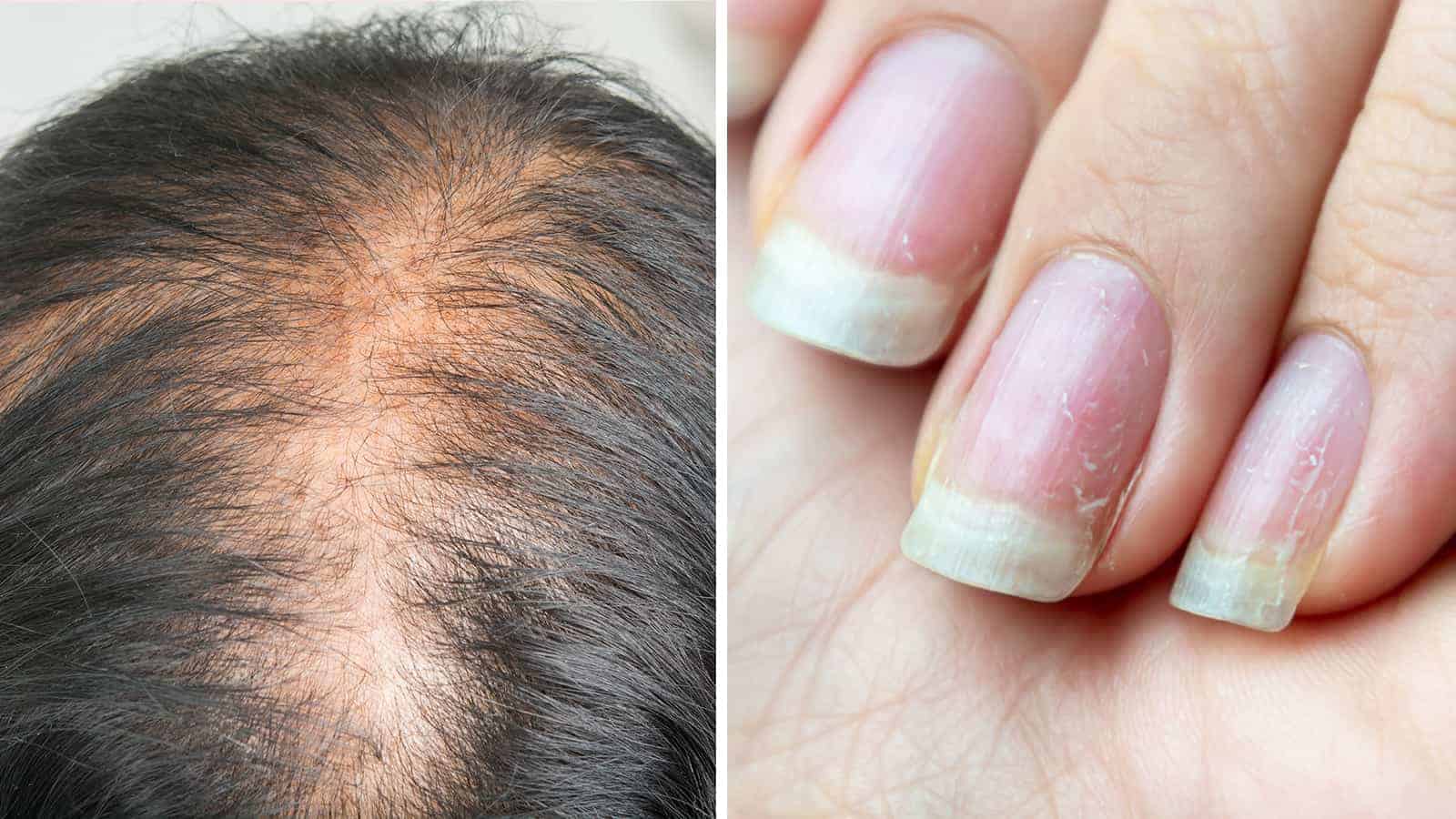Protein is present in many different foods. Fortunately, some of the best options for protein content are also among the healthiest. It makes sense that protein isn’t just healthy but crucial to everyday life. Without it, the body cannot function.
It’s rare in this day and age for protein deficiencies to be significant enough to have hugely noticeable or dangerous effects. But that doesn’t mean that there aren’t some negative factors associated with a moderate or even mild lack of protein. Here are 7 things that happen to your body when you don’t eat enough.
1. Muscle Mass Loss
The muscles are where most of the human body keeps its stores. A lack of protein consumption can force the body to use up those stores to provide the body with the nutrition it needs.
Protein is needed to preserve numerous bodily functions and crucial tissue. To continue supporting those functions when you don’t eat enough, skeletal muscles provide their protein reserves. Doctors call this issue, “muscle wasting.”
Unfortunately, even just a moderate level of insufficiency in protein consumption can lead to muscle wasting. In fact, research has confirmed many times that muscle loss occurs at a greater rate, the less protein you consume. It is also believed that eating more protein can reduce the rate of age-related muscle degeneration.
 2. Increased Caloric Intake
2. Increased Caloric Intake
Lacking protein often means you’re making up for it with other kinds of foods that are more packed in calories. In mild deficiencies, you are likely to consume more calories. This happens for many reasons, as proven below:
· The Body Fights To Restore Protein
A lack of protein means the body must find ways to compensate for the amount it uses from muscle storage. To achieve this, the body tries to push you into finding more food, hoping protein will be among the new consumed components. This leads to increased appetite, according to studies. Resisting the desire to eat is often very difficult, as the lack of sufficient food as perceived by the body drops positive thinking and concentration.
· You Might Experience Increased Savory Cravings
For some, the body is more specific about the kinds of food it wants you to eat. Research has found that many people experience a craving geared toward savory meals instead of general hunger when they lack protein. Unfortunately, a lot of the most convenient ways to sate savory cravings involve junk food, packaged meals, and high-calories fare all around. Worse still, these empty calories have even less protein than healthier options, so it won’t aid the cravings!
· You May Gain Unwanted Weight
Unfortunately, with the added consumption of excess food to make up for protein deficiency, you’d be subject to something that experts call the protein leverage hypothesis. The hypothesis states that humans will naturally prioritize protein over other foods and eat until those requirements are met. Supposedly, if they meet their protein requirements, their desire to eat other foods will be reduced, and they will eat less overall. Sadly, this means that if you don’t eat enough protein, your body will keep demanding more and more food to seek it out, even to the point of significant weight gain.
· Protein Is More Filling
Protein is known to be more satisfying than fats and carbs, which is why it plays a big role in weight loss programs. This means that lacking protein means you’re less likely to feel full from the calories you do eat, leading to further consumption.
3. Higher Fat Accumulation In Liver
The liver cells can accumulate fat over time, leading to a dangerous condition called fatty liver disease that may result in liver damage, inflammation, and failure. It’s most common among those who drink excess alcohol or the medically obese.
Surprisingly, this disease links in some ways to protein deficiency. Researchers believe this might be due to impaired proteins responsible for transporting fat throughout the body. These are lipoproteins. And a deficiency in their synthesis can lead to fat deposits being left in the liver.
So far, research is still working on better understanding these links. Still, current studies seem to support some form of impairment from protein deficiency as a risk factor for fatty liver disease.
4. Higher Fracture Risk
Most of us don’t associate protein with bones, but the fact is that bones are also at risk from even a moderate deficiency. How? Here are some studies that explain and prove the concept:
- “Low protein intake: the impact on calcium and bone homeostasis in humans,” published in The Journal of Nutrition (2003). This paper covers many of the basic factors and relationships between protein deficiency and bone weakness, specifically of the kind that worsens fracture risk. It indicates that these links are well-studied and understood.
- “Protein supplements increase serum insulin-like growth factor-I levels and attenuate proximal femur bone loss in patients with recent hip fracture. A randomized, double-blind, placebo-controlled trial” published in Annals of Internal Medicine (1998). This study indicated that 20 grams of protein supplementation over the course of six months could reduce bone loss by an impressive 2.3%.
- “Prospective study of dietary protein intake and risk of hip fracture in postmenopausal women” published in The American Journal of Clinical Nutrition (1999). This study indicated that is postmenopausal women, eating higher protein amounts, can reduce the risk of developing hip fractures. At the highest healthy intake, this caused a reduced risk of 69%, with animal proteins having the most positive.
 5. Worsened Infection Severity
5. Worsened Infection Severity
Did you know that a lack of protein can harm the immune system? If you don’t consume enough of the nutrient, you’ll be at greater risk for catching viruses and developing severities and complications from infections of any kind. Here are some studies that discuss this:
- “Protein-energy malnutrition decreases immunity and increases susceptibility to influenza infection in mice,” published in The Journal of Infectious Diseases (2013). This study was conducted on mice and revealed that, when following a diet consisting of 2% protein, mice had a higher chance of developing severe infections from influenza than mice with an 18% protein diet.
- “Amino acids and immune function,” published in British Journal of Nutrition (2007). This research identified strong links between deficiency and symptoms involving worsened infections and overall immune system function. So if you want positive health, you’d likely have to eat more protein.
- “Elderly women accommodate a low-protein diet with losses of body cell mass, muscle function, and immune response” published in The American Journal of Clinical Nutrition (1995). This work of research was performed on older women who were asked to follow a diet that was low in protein. After nine weeks, they showed a notable reduction in immune system response.
6. Hair, Nail, and Skin Issues
If you lack protein to a minor or moderate degree, then you’re unlikely to notice problems with the appearance of your:
- nails
- skin
- hair
But if you are severely deficient, you might start seeing the marks of that unmet nutritional needs. Many parts of your body are made of protein – and nails, hair, and skin are among them.
Here are some studies showing the links between a deficiency and the changing appearance of protein-based body parts:
- “Nutritional factors and hair loss” published in Clinical and Experimental Dermatology (2002). This study discusses the clear links between nutrition and the premature loss of hair, positing that protein-energy malnutrition is among one of the many causes of the issue.
- “Skin, hair, and nail in protein malnutrition,” published in World Review of Nutrition and Dietetics (1961). This extremely early study shows that researchers discovered malnutrition’s effects on hair, nails, and skin even back then. Low-protein diets would consistently result in discoloration, thinning, loss of hair, and increased nail brittleness.
- “Skin in protein-energy malnutrition” published in Archives of Dermatological Research (1987). This study focused on children living with severe protein deficiency in countries with less positive economic standings. It revealed that skin in children with that deficiency could split, become flaky, develop depigmentation, and experience redness.
7. Edema
Edema is a condition where the skin becomes puffy and swollen. In some cases, it’s at least mostly harmless. In others, it can be a symptom of something serious or even be dangerous. Most scientists think it is the result of low blood albumin levels in humans.
Serum albumin, aka blood albumin, is an incredibly abundant in the blood plasma. It is the most prevalent of all proteins within that liquid portion of the blood and has multiple functions. It works in many ways, with one of its most notable functions being oncotic pressure maintenance.
The oncotic pressure is a kind of force that brings fluid into the circulation system of the blood. This prevents the accumulation of any fluid in compartments of the body, like tissues. Thinking about how a deficiency can lead to edema can be complicated. So let’s break it down step by step:
- 1: A deficiency in your consumption leads to a drop in serum albumin levels.
- 2: Serum albumin, due to its insufficient quantity, cannot perform its duties accurately, causing unbalanced oncotic pressure.
- 3: Oncotic pressure is too weak to pull fluids into the bloodstream and away from other places. This leads to swelling in those locations.
 Final Thoughts On Some Things That Happen To Your Body When It Lacks Enough Protein
Final Thoughts On Some Things That Happen To Your Body When It Lacks Enough Protein
Protein deficiency, while rare, is something to be taken seriously. It can cause many different symptoms in the body that could have serious long-term effects.
Worried about your protein intake? Put on your positive thinking! It’s hard to be significantly deficient in nutrient. So make sure that you’re consuming 0.36 to 0.45 grams of the stuff per pound of your body weight. This is the daily recommended intake. If you’re still concerned, consult a doctor or nutritionist for advice!


















